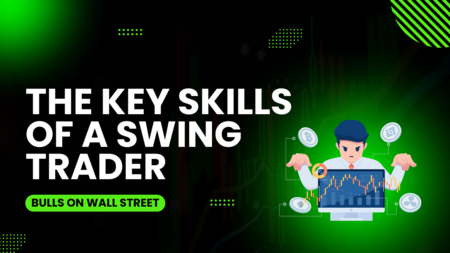Different types of trading methods require unique sets of skills. This doesn’t mean that you can’t be a day trader and hold long-term positions in stocks as an investment as well. It does mean, however, that the way that you go about picking what you’re going to invest in is usually completely different. In fact, the indicators that you’re going to use to guide you may even contradict each other at times. Swing trading is no different in that regard. There are key skills swing traders need to develop to be successful. Here’s a list of a few of them, as well as a brief strategy to make a habit of them!
Key Skills Swing Traders Need: Planning
Planning is not only one of the key skills swing traders need. It’s the first thing that a good trader has to learn to do. Keep in mind that swing trading forces you to stay in a position for days or weeks with the hopes of earning a profit. The difference between swing trading and day trading in this regard is that swing trading gives you more time to study your entry points.
What you’ll be looking for is a stock that features indicators that will allow you to predict what its price is going to do. The best swing traders would be the guy or gal in the movie who draws up the plan for the bank heist, while others execute them to perfection. If you’re looking for a family-friendly example, swing traders are the coaches who design creative plays to get the team easy walk-in touchdowns. All of the following key skills swing traders need, revolve around becoming a good planner.
Interpreting the News Cycle
Suppose the US is going to impose new tariffs on goods coming from China, particularly microchips. This was a more common sight in previous administrations, but it’s still a decent example. You can then go and look into what companies rely on these Chinese goods. Those companies will likely have to increase their prices, possibly affecting sales and, therefore, the stock price.
At times, interpreting the news cycle isn’t as complex, either. When the chair of the FED, Jerome Powell, steps up to a podium to say the FED’s slashing interest rates, this could mean an uptick for many stocks. The key skills swing traders need here is to be able to anticipate what a stock price is going to do with the incoming news. Since we usually know when a FED announcement is coming or when a company is going to report to its shareholders, those can be good dates to buy a position in a particular stock.
Trust & Patience Are Key Skills Swing Traders Need
These two elements are essential to a swing trader. To be completely honest, practice is one of the best ways to develop the skills swing traders need. In that practice, you’ll build trust and patience. The reason why you’ll build these two skills is because when you start doing things the right way, your predictions are going to come true more often than not. This is not to say that, over time, you’ll have a crystal ball delivered to your door. Markets move through different tendencies, however. The key is to learn how to spot these tendencies to draw up your plans.
Trust and patience are key skills swing traders need because otherwise you’re going to want to kill your trade every time the tendency seems to not be going your way. Again, it’s important to keep in mind that prices can fluctuate. Ultimately, if you draw up a good plan, you’ll eventually get to an exit point where you can turn a profit. It’s true, though, that these two skills make it a bit hard for day traders to swing trade. They’re used to killing off positions when the tendency isn’t in their favor to minimize losses.
Risk and Money Management
Trading is always going to involve risk. The perfect plan can be blindsided by unforeseen events. There are things like the COVID-19 pandemic, for example, that obviously blindsided investors. While this issue probably hit long-term investors the hardest, some swing traders were caught in the spiral as well. That goes back to the point about monitoring the news cycle. This is not something that you do just to choose where to enter the market.
It could also be something you keep an eye on to see if the conditions that you thought were going to be in place change. Understanding what the risks are is another one of the key skills swing traders need to develop. At times, this is seen more as what “red flags” could come up that will alter your predictions for a stock price.
Money management also comes into play here. The golden rule for investors, in general, has always been that you should invest only in what you can afford to lose. In truth, this is a rule many professional traders sometimes violate, especially when they are starting out. This can lead to them taking very big risks! When it comes to swing trading, since you’re holding the position for a while, you really should only invest what you can afford to lose. The good thing about swing trading, in most cases, is that even if you take a loss, it won’t total your entire initial investment.
If you want to learn more about the skills swing traders need to be successful, be sure to sign up for the upcoming 5-part swing trading Master Class here at Bulls on Wall Street. There’s also our usual 60-day trading boot camp that’s perfect for novice traders to break into the market!


